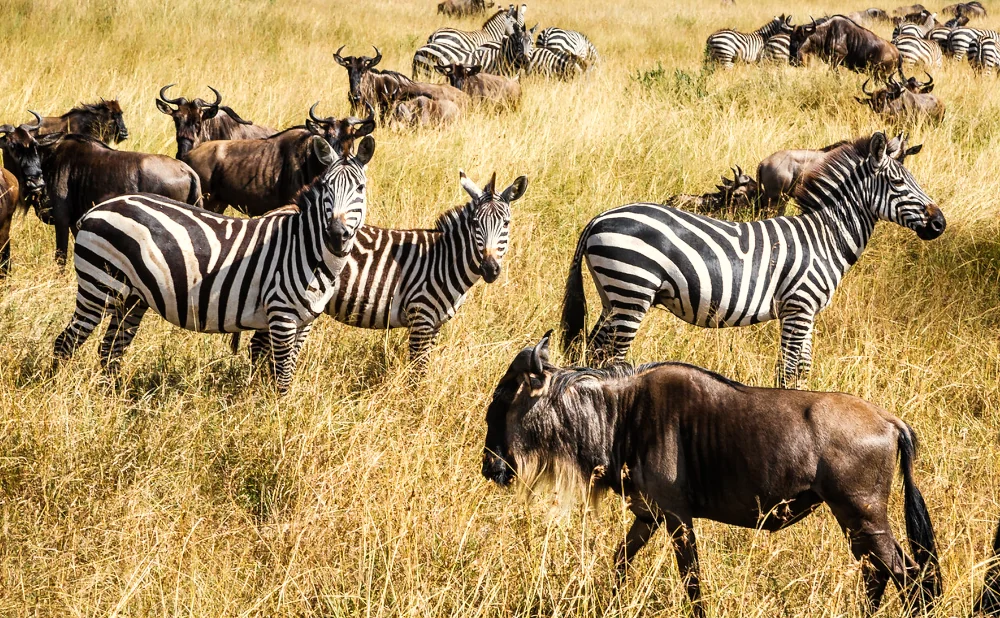Exploring the Diversity of Religion in Tanzania
Tanzania, a country known for its stunning landscapes and rich wildlife, is also a melting pot of diverse religious beliefs. This East African nation is a fascinating study in religious diversity and coexistence.
The main religion in Tanzania is Christianity. It's followed by a significant number of Muslims. Yet, the religious tapestry of Tanzania is far from monochromatic. Indigenous beliefs continue to shape the cultural undercurrent of the nation.
This article aims to take you on a journey through the religious landscape of Tanzania. We'll explore the main religions, their cultural significance, and the harmony that exists among them.
Whether you're a student, a traveler, or simply curious about the world's religions, this guide will offer a comprehensive look at the diversity of religion in Tanzania. Join us as we delve into this fascinating topic.
The Religious Landscape of Tanzania
Tanzania is a country where diverse religious beliefs coexist. The constitution guarantees freedom of religion, fostering a climate of religious tolerance. This has resulted in a rich tapestry of faiths, each contributing to the country's cultural identity.
Christianity is the predominant faith in Tanzania. It's represented by various denominations, including Roman Catholic, Lutheran, and Anglican. Each denomination has its unique traditions and practices, adding to the country's religious diversity.
Islam, primarily Sunni, is the second most practiced religion. The island of Zanzibar, with its unique religious heritage, has a predominantly Muslim population. The influence of Islam is particularly evident along the coastal regions.
Indigenous beliefs, though not as widespread as Christianity or Islam, continue to play a significant role. These beliefs often coexist with the major religions, influencing customs and traditions.
Christianity: The Predominant Faith
Christianity is the main religion in Tanzania. It was introduced by European missionaries during the colonial period. Today, it's practiced by a majority of the population.
Various Christian denominations exist in Tanzania. These include Roman Catholic, Lutheran, and Anglican churches. Each denomination has its unique practices and traditions.
Christian festivals and celebrations are vibrant and significant. They attract both local and international attention. These events are not just religious, but also cultural, reflecting the country's diverse heritage.
Christian leaders in Tanzania often play important roles in community development. They also influence social issues, reflecting the faith's significant role in Tanzanian society.
Islam: A Significant Presence
Islam is a significant presence in Tanzania. It's primarily Sunni, with a notable Shia minority. The faith has historical roots in the country, dating back to Arab trade routes.
The island of Zanzibar is predominantly Muslim. Its unique religious heritage is a testament to the historical influence of Islam in the region. The island's mosques and religious festivals are a major draw for tourists.
Islamic leaders, like their Christian counterparts, play a crucial role in Tanzanian society. They contribute to community development and engage in social issues.
Islamic holidays, such as Ramadan and Eid, are public holidays in Tanzania. These celebrations are a significant part of the country's religious and cultural calendar.
Indigenous Beliefs: The Cultural Undercurrent
Indigenous beliefs in Tanzania form the cultural undercurrent of the nation. These beliefs often coexist with Christianity and Islam, influencing customs and traditions.
The Maasai, one of Tanzania's indigenous groups, maintain their traditional religious beliefs. These beliefs often exist alongside Christianity or Islam, reflecting the country's religious syncretism.
The influence of indigenous beliefs is evident in Tanzanian art, music, and dance. These cultural expressions are a testament to the enduring legacy of the country's indigenous religious heritage.
Religious Tolerance and Coexistence
In Tanzania, religious tolerance is a cornerstone of society. The constitution guarantees freedom of religion, allowing diverse faiths to coexist. This has fostered a climate of mutual respect and understanding.
Interfaith marriages are not uncommon in Tanzania. They reflect the country's religious diversity and tolerance. These unions often serve as a bridge between different faith communities.
Religious conflicts in Tanzania are relatively rare. When they occur, they are addressed through dialogue and community engagement. This approach has helped maintain peace and stability in the country.
Interfaith Dialogue and Cooperation
Interfaith dialogue and cooperation are encouraged in Tanzania. These initiatives promote peace and understanding among different faith communities. They also foster a sense of shared identity and purpose.
Religious leaders play a crucial role in promoting interfaith dialogue. They often serve as mediators in conflicts and advocates for peace. Their influence extends beyond their respective faith communities, impacting the broader society.
Interfaith initiatives also focus on social justice and community service. They provide a platform for religious communities to work together for the common good. This cooperation strengthens social bonds and promotes mutual respect.
The Role of Religion in Social Issues
Religion plays a significant role in addressing social issues in Tanzania. Religious leaders often engage in community development and social advocacy. They use their influence to address issues like poverty, education, and health.
Religious institutions in Tanzania are allowed to operate educational and health facilities. These institutions provide essential services to the community. They also contribute to the country's social and economic development.
Religious education is part of the curriculum in Tanzanian schools. It reflects the country's commitment to religious diversity. This education fosters tolerance and understanding among the youth, shaping the next generation of Tanzanian society.
Celebrating Diversity Through Festivals and Traditions
Religious festivals and celebrations are vibrant in Tanzania. They attract both local and international attention. These events showcase the country's rich religious diversity.
Each festival is a unique expression of faith. It's a time for communal prayer, feasting, and celebration. These events foster a sense of community and shared identity.
Despite the differences in beliefs, Tanzanians often participate in each other's religious festivals. This participation is a testament to the country's spirit of religious tolerance and coexistence.
The Impact of Religion on Tanzanian Culture
Religion has a profound impact on Tanzanian culture. It influences art, music, and dance. These cultural expressions often carry religious symbolism and narratives.
Religious values also influence Tanzanian cuisine. Dietary laws and customs associated with different faiths shape the country's food culture. This influence extends to social gatherings and festivals.
Religion also shapes the social and personal identity of Tanzanians. It provides a sense of belonging and purpose. This influence is evident in the country's traditions, customs, and everyday life.
The Future of Religious Diversity in Tanzania
The future of religion in Tanzania is likely to be shaped by the youth. They stand at the intersection of tradition and modernity. Their choices will influence the religious landscape of the country.
Youth and Modernity: Shaping the Next Generation
The youth are exposed to new religious movements and ideas through globalization. They are also more likely to question traditional practices. This questioning could lead to a shift in religious demographics in Tanzania.
At the same time, the youth are the torchbearers of religious tolerance. They are the ones who will carry forward the legacy of interfaith dialogue and cooperation. Their actions will determine the future of religious coexistence in Tanzania.
Embracing the Rich Tapestry
In conclusion, the diversity of religion in Tanzania is a testament to the country's rich cultural heritage. It is a reflection of the nation's history, its openness to different beliefs, and its commitment to religious freedom.
The peaceful coexistence of diverse faiths in Tanzania serves as a model for other nations. It shows that religious diversity can contribute to societal harmony and mutual respect. This is the true essence of Tanzania's religious landscape.











